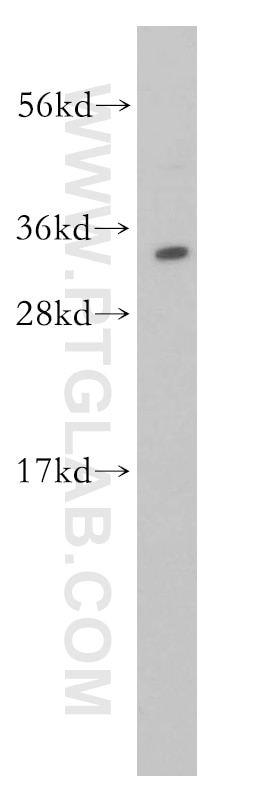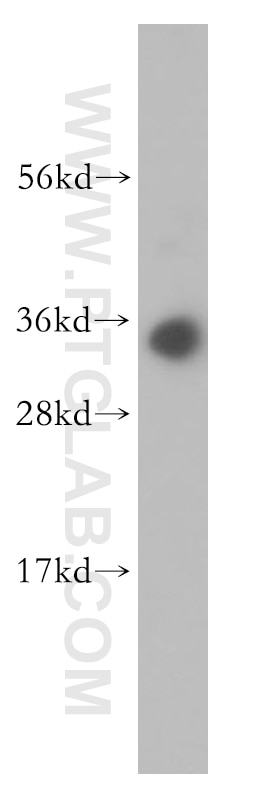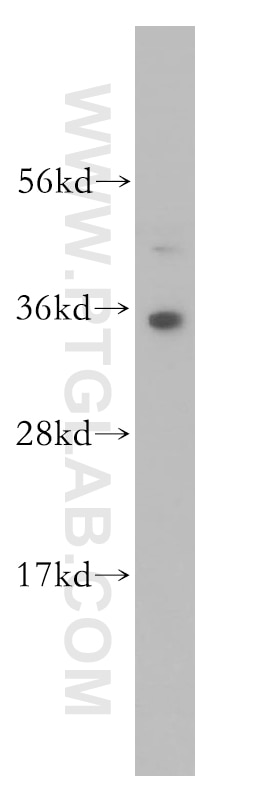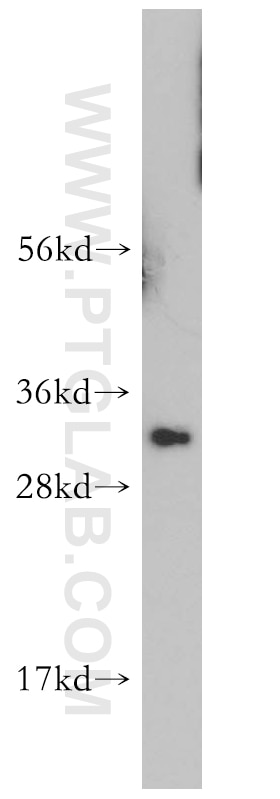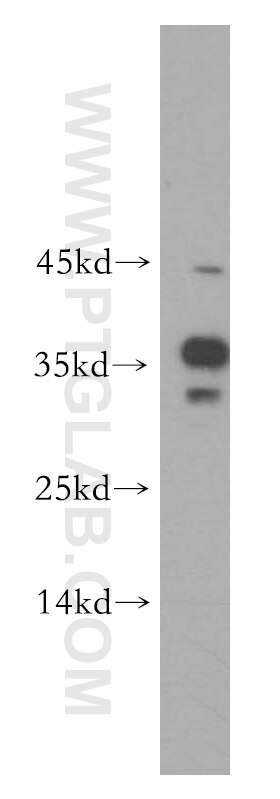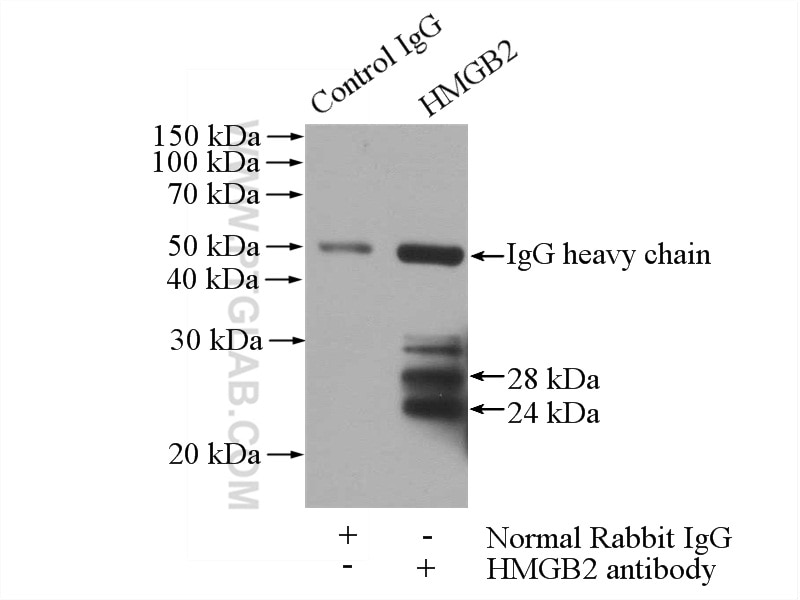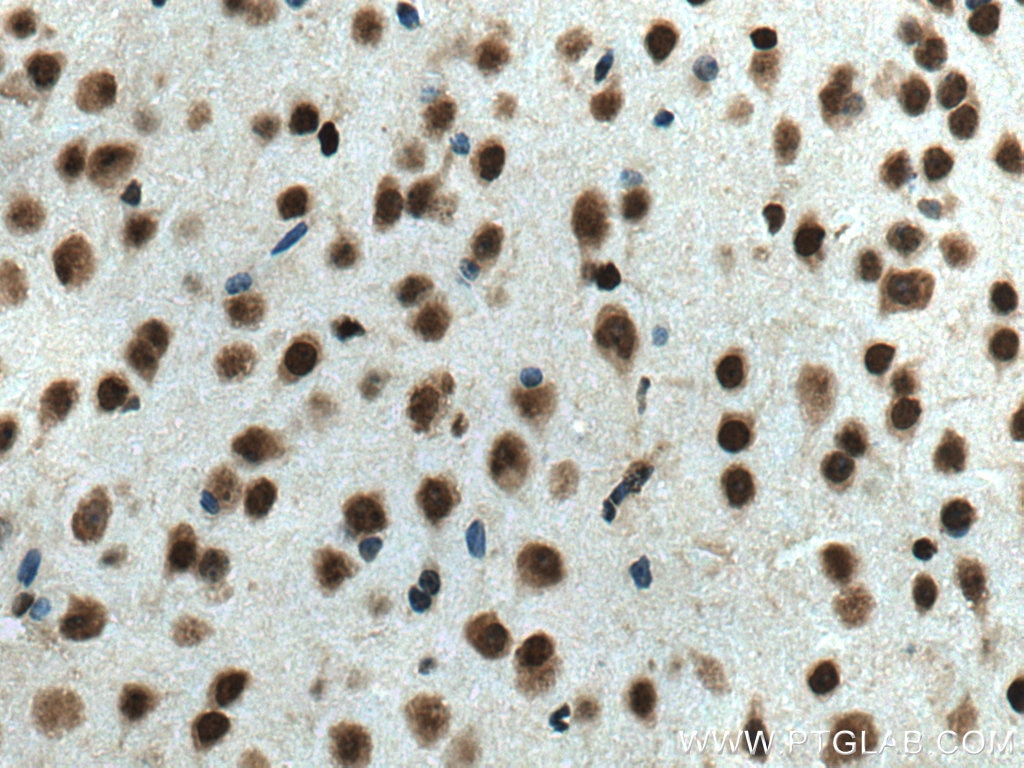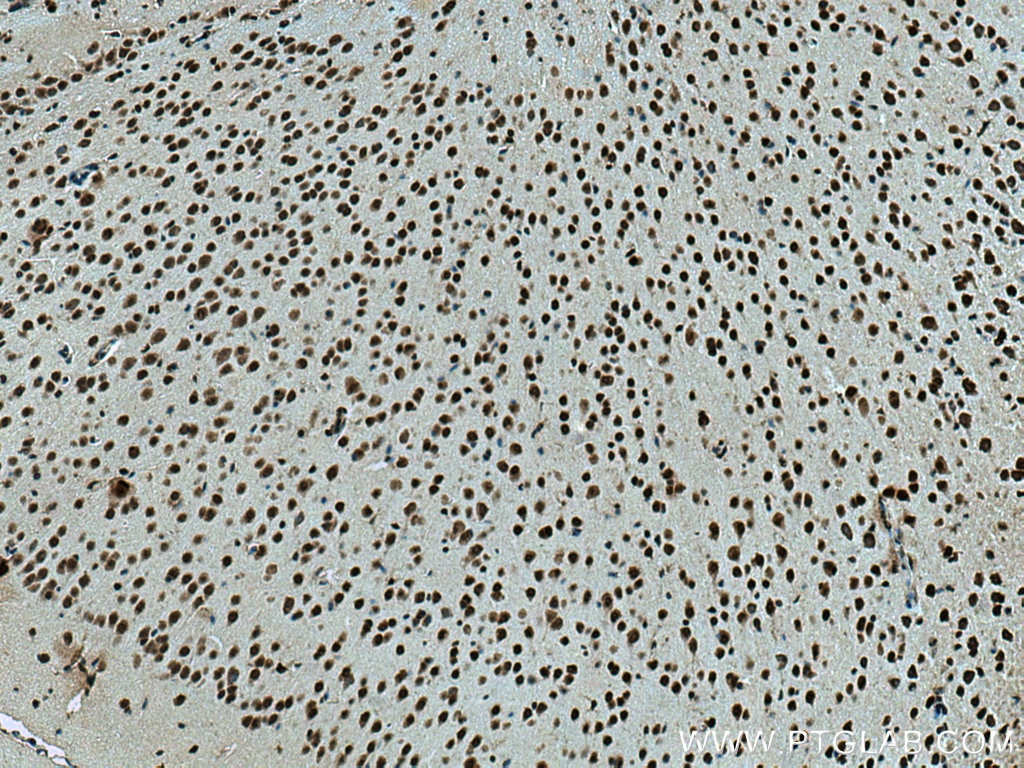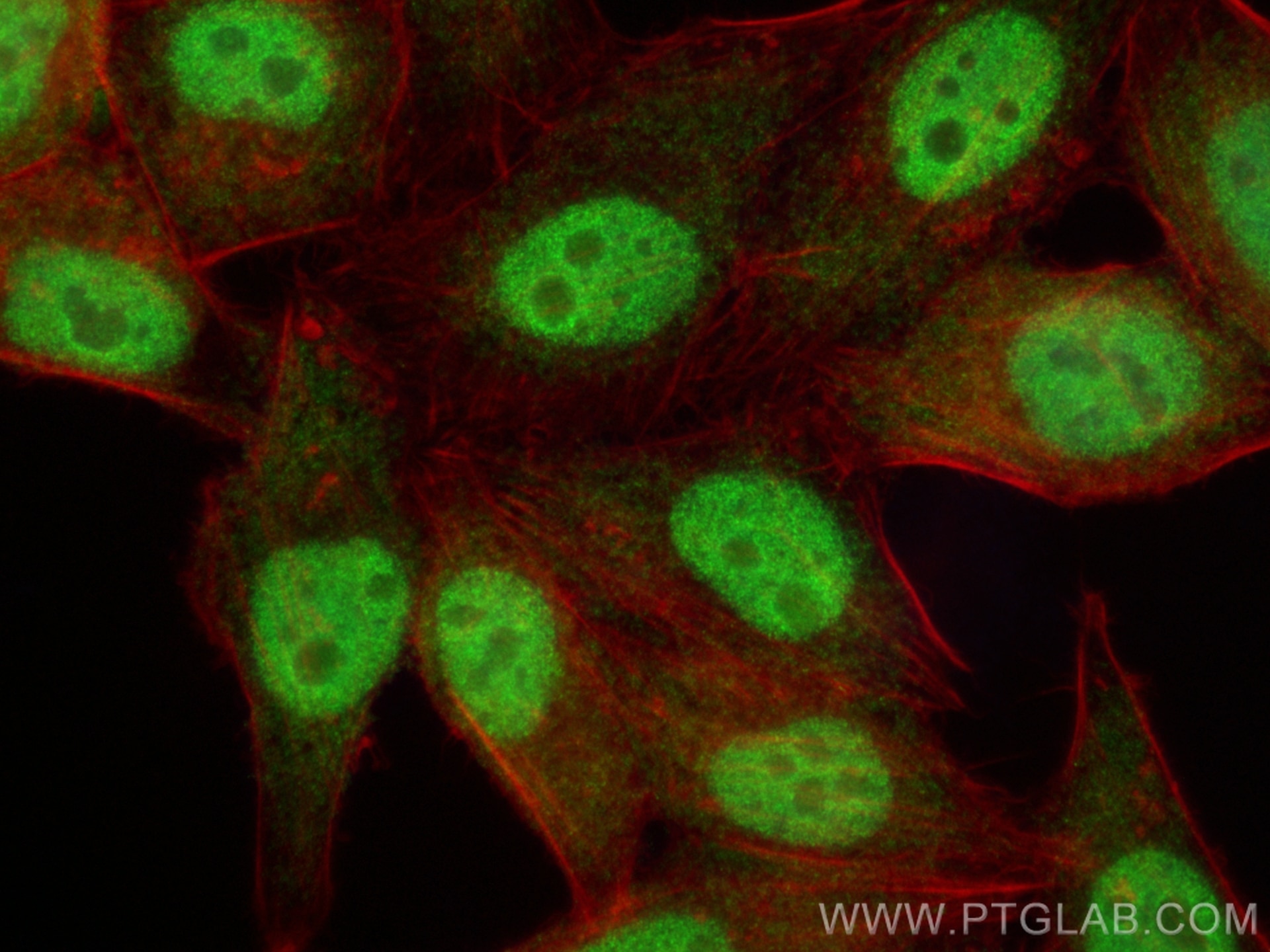Validation Data Gallery
Tested Applications
| Positive WB detected in | Jurkat cells, HEK-293 cells, HL-60 cells, human cerebellum tissue, K-562 cells |
| Positive IP detected in | HEK-293 cells |
| Positive IHC detected in | mouse brain tissue Note: suggested antigen retrieval with TE buffer pH 9.0; (*) Alternatively, antigen retrieval may be performed with citrate buffer pH 6.0 |
| Positive IF/ICC detected in | HepG2 cells |
Recommended dilution
| Application | Dilution |
|---|---|
| Western Blot (WB) | WB : 1:500-1:3000 |
| Immunoprecipitation (IP) | IP : 0.5-4.0 ug for 1.0-3.0 mg of total protein lysate |
| Immunohistochemistry (IHC) | IHC : 1:50-1:500 |
| Immunofluorescence (IF)/ICC | IF/ICC : 1:200-1:800 |
| It is recommended that this reagent should be titrated in each testing system to obtain optimal results. | |
| Sample-dependent, Check data in validation data gallery. | |
Published Applications
| KD/KO | See 4 publications below |
| WB | See 13 publications below |
| IF | See 3 publications below |
Product Information
14597-1-AP targets HMGB2 in WB, IF/ICC, IP, ELISA applications and shows reactivity with human, mouse, rat samples.
| Tested Reactivity | human, mouse, rat |
| Cited Reactivity | human, mouse, rat |
| Host / Isotype | Rabbit / IgG |
| Class | Polyclonal |
| Type | Antibody |
| Immunogen | HMGB2 fusion protein Ag6135 相同性解析による交差性が予測される生物種 |
| Full Name | high-mobility group box 2 |
| Calculated molecular weight | 24 kDa |
| Observed molecular weight | 33-35 kDa |
| GenBank accession number | BC001063 |
| Gene Symbol | HMGB2 |
| Gene ID (NCBI) | 3148 |
| RRID | AB_2117919 |
| Conjugate | Unconjugated |
| Form | Liquid |
| Purification Method | Antigen affinity purification |
| UNIPROT ID | P26583 |
| Storage Buffer | PBS with 0.02% sodium azide and 50% glycerol , pH 7.3 |
| Storage Conditions | Store at -20°C. Stable for one year after shipment. Aliquoting is unnecessary for -20oC storage. |
Background Information
High mobility group protein B2 (HMGB2) belongs to a family of highly conserved proteins that contain HMG box domains (11246022,14871457). All three family members (HMGB1, HMGB2, and HMGB3) contain two HMG box domains and a C-terminal acidic domain. HMGB1 is a widely expressed and highly abundant protein (14871457). HMGB2 is widely expressed during embryonic development, but it is restricted to lymphoid organs and testis in adult animals (11262228). HMGB3 is only expressed during embryogenesis (9598312). While expression varies, the biochemical properties of the different family members may be indistinguishable. The HMG box domains facilitate the binding of HMGB proteins to the minor groove of DNA, which results in local bending of the DNA double helix . HMGB proteins are recruited by and help facilitate the assembly of site-specific DNA binding proteins to their cognate binding sites in chromatin. For example, HMGB1 and HMGB2 facilitate the binding of Hox proteins, Oct proteins, p53, Rel proteins, and steroid hormone receptor proteins to their target gene promoters (11246022,14871457). Furthermore, HMGB2 interacts with RAG1 to facilitate RAG complex binding to the recombinant signal sequence (RSS) and stimulate DNA-bending and subsequent VDJ cleavage at antigen receptor genes (19317908 ,10490593). In addition to their functions in the nucleus, HMGB proteins play a significant role in extracellular signaling associated with inflammation. HMGB2 is secreted by myeloid cells and promotes proliferation and migration of endothelial cells by binding to the receptor for advanced glycation endproducts (RAGE) (19811285 ). Research studies have shown that HMGB2 overexpression in hepatocellular carcinoma is associated with poor prognosis and shorter survival time (20851854).This antibody recognizes the phosphorylation form of HMGB2 protein. The calculated molecular weight of HMGB2 is 24 kDa, but the post-modifiction of HMGB2 is about 33-35 kDa. (PMID: 18218727)
Protocols
| Product Specific Protocols | |
|---|---|
| WB protocol for HMGB2 antibody 14597-1-AP | Download protocol |
| IHC protocol for HMGB2 antibody 14597-1-AP | Download protocol |
| IF protocol for HMGB2 antibody 14597-1-AP | Download protocol |
| IP protocol for HMGB2 antibody 14597-1-AP | Download protocol |
| Standard Protocols | |
|---|---|
| Click here to view our Standard Protocols |
Publications
| Species | Application | Title |
|---|---|---|
Front Immunol Single-cell protein activity analysis reveals a novel subpopulation of chondrocytes and the corresponding key master regulator proteins associated with anti-senescence and OA progression | ||
Ecotoxicol Environ Saf Proteomic analysis reveals that cigarette smoke exposure diminishes ovarian reserve in mice by disrupting the CREB1-mediated ovarian granulosa cell proliferation-apoptosis balance | ||
Environ Pollut Fluoride-induced unrestored arrest during haploid period of spermatogenesis via the regulation of DDX25 in rats. | ||
Chemosphere Arsenic influences spermatogenesis by disorganizing the elongation of spermatids in adult male mice. | ||
Cancer Gene Ther The LncRNA RP11-301G19.1/miR-582-5p/HMGB2 axis modulates the proliferation and apoptosis of multiple myeloma cancer cells via the PI3K/AKT signalling pathway. | ||
Cell Commun Signal HMGB2 is associated with malignancy and regulates Warburg effect by targeting LDHB and FBP1 in breast cancer.
|
